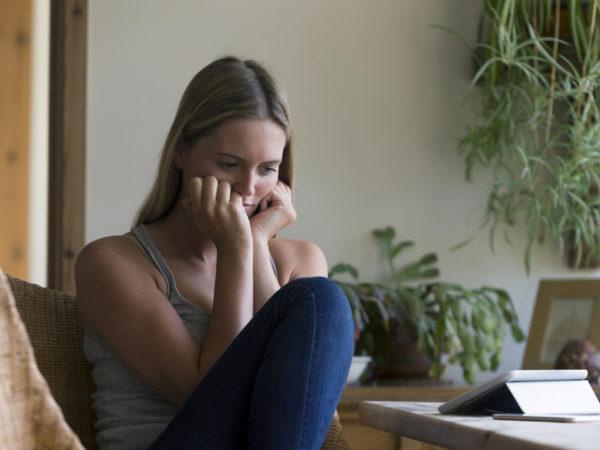The Downside Of Social Media

New research suggests that negative experiences on social media are strongly linked to symptoms of depression. Investigators from the University of Pittsburgh reached this conclusion after surveying 1,179 students between the ages of 18 and 30. Based on responses to questionnaires, the researchers found that each 10 percent increase in negative encounters was linked to a 20 percent rise in the odds of experiencing feelings of depression. They also reported that each 10 percent increase in positive social media interactions was associated with a four percent decline in the odds of depressive feelings, a result that wasn’t considered statistically significant. Lead author Brian Primack, M.D., Ph.D., noted that the study didn’t reveal whether the depressive symptoms reported actually were caused by negative social media interactions or whether depressed individuals were more likely to focus on or seek out negative interactions. He added that a combination of the two probably is the case, but more research will be needed to sort it out. The study also revealed that compared with men, women had 50 percent higher odds of having depressive symptoms. So did respondents identifying themselves as non-white and having attended college without receiving a degree.
My take? The attraction of social media is no mystery. Human beings are hard-wired to communicate, because sharing information with other people was, and is, vital to personal and social survival. Social media taps into that basic need. While conversations on Facebook and Twitter may seem similar to face-to-face exchanges with friends, they actually are quite different. Most real-world conversations allow you to share personal insights in ways that build real intimacy and trust. While social media certainly allows broader social interactions, it is fraught with problem behaviors including cyber-bullying, and encounters that can result in negative experiences.
My advice: Never mistake social media conversations and interactions for real ones. Make a point of limiting the time you spend socializing online. Instead, focus on cultivating and maintaining intimate, supportive relationships with real people in the real world.
Source:
Brian A. Primack et al, “The association between valence of social media experiences and depressive symptoms.” Depression and Anxiety, June 6, 2018; DOI: 10.1002/da.22779
Also in this week’s bulletin:











